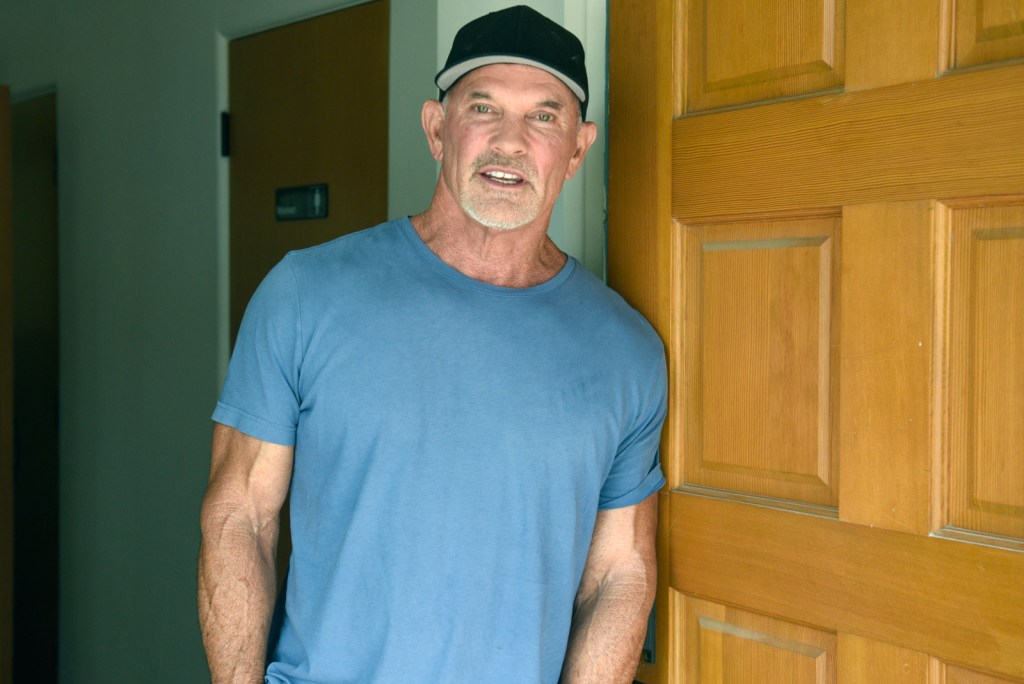Wearing a black hat, a black T-shirt and black shorts, Santa Barbara landlord and developer Ed St. George, notified the Santa Barbara City Council that he intends to build 41 units of low-income senior rental housing on two properties he recently acquired on the 1500 block of Garden Street and challenged City Hall not to throw any roadblocks that would impede his right to develop in “a timely and reasonable manner.”
St. George, still simmering over the Planning Commission’s rejection of a four-story hotel he proposed on East Montecito Street, complained how the city’s advisory boards and commission dragged out the permitting process so long that developers found themselves financially forced to walk away from projects that conformed with existing zoning and land-use restrictions In that vein, St. George vowed he would seek no special modifications or variances when it came to height, setbacks, or parking. His units would be “100 percent affordable,” he vowed, for people making 80 percent of the Area Median Income. He would, however, be seeking a density bonus consistent with the city’s Average Unit Density ordinance.
St. George made his remarks during the public comment period of last week’s council meeting. Afterward, he said he would name the new development “Gott Gardens,” a clear jibe at the acerbically outspoken council watchdog Anna Marie Gott, who testified against his proposed hotel a month ago. (TK) St. George has yet to submit any plans for his new proposed three-story development located across the street from Alice Keck Park Memorial Garden. Legally, councilmembers are advised not to respond to any statements made during public comment on non-agendized items. Even so, Mayor Murillo responded, “It seems like a really interesting project, and we’d like to hear more about it.”
St. George recently bumped up against City Hall over his efforts to evict six Section 8 tenants from a senior housing rental property he’d acquired on East Mason Street by the Second Baptist Church. Initially St. George argued two of the tenants were too young to qualify for the senior housing and the other four had vowed to oppose his plans to transform the abandoned church into an intensely programmed community center. Ultimately, St. George relented on evicting the four senior tenants.

